Why are marriages between Syrian women and men from neighboring countries increasing?
LONDON: Unofficial advertisements for “cheap Syrian brides” have been circulating on Iraqi social media platforms in recent months, some of which perpetuate metaphors about Syrian women with phrases such as “Marry a Syrian woman for $100 and enjoy delicious cuisine and a charming dialect.”
The controversial posts, which have been highlighted by local media, have captions that seem to advertise junk. One post reads, “You can listen to Toborni (Syrian nickname) at home for 500,000 dinars.” That’s $380.
The men who promote this trend lament the exorbitant mahrs demanded by Iraqi women, often between $10,000 and $20,000, locals told Arab News. In addition, they say, potential Iraqi brides often demand real estate, expensive jewelry and cars.
In Muslim societies, it is an obligatory gift from the groom to the bride, a sign of security and respect, and often has legal significance in marriage contracts.
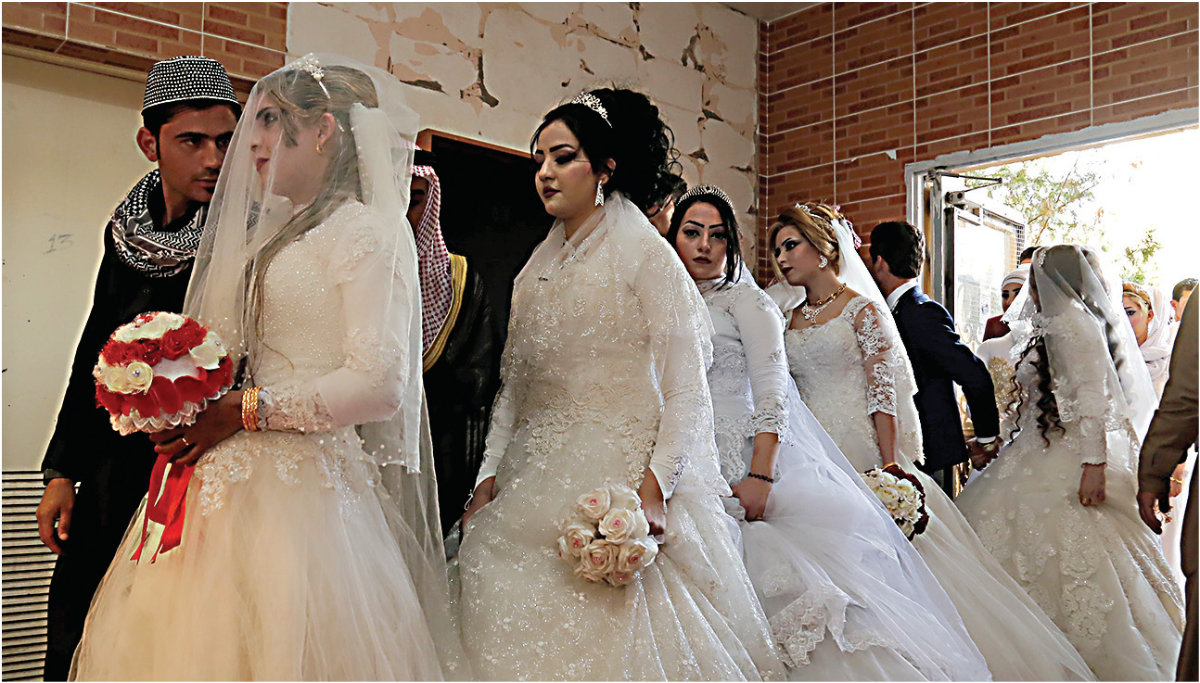
A Syrian Kurdish bride and groom attend a mass wedding ceremony organized by the Iraqi Kurdistan Charity Foundation in Erbil. File photo provided for illustrative purposes only. (Anadolu Agency/Getty Images)
The sheer volume of online posts, especially on the video platform TikTok, suggests that the trend is real. Commentators have expressed outrage at the posts, saying the rhetoric is insulting to both Syrian and Iraqi women.
More than a decade of violence, displacement, economic hardship and uncertainty have already eroded the dignity of Syrian women. Now, in the neighboring country where they sought safety and economic stability, they endure a form of commodification.
Many Syrian women are becoming the sole providers for their families and are seeking work in neighboring countries, such as Iraq, as the economic situation in their home country worsens.
Faced with the harsh reality of living alone in a conservative society and a country with limited legal protections, some women agree to marry local women for less or no mahr.
Syrian Ambassador to Iraq Satam Jadan al-Dandah said in January that around 5,000 marriages between Syrian women and Iraqi men had been recorded in 2023.
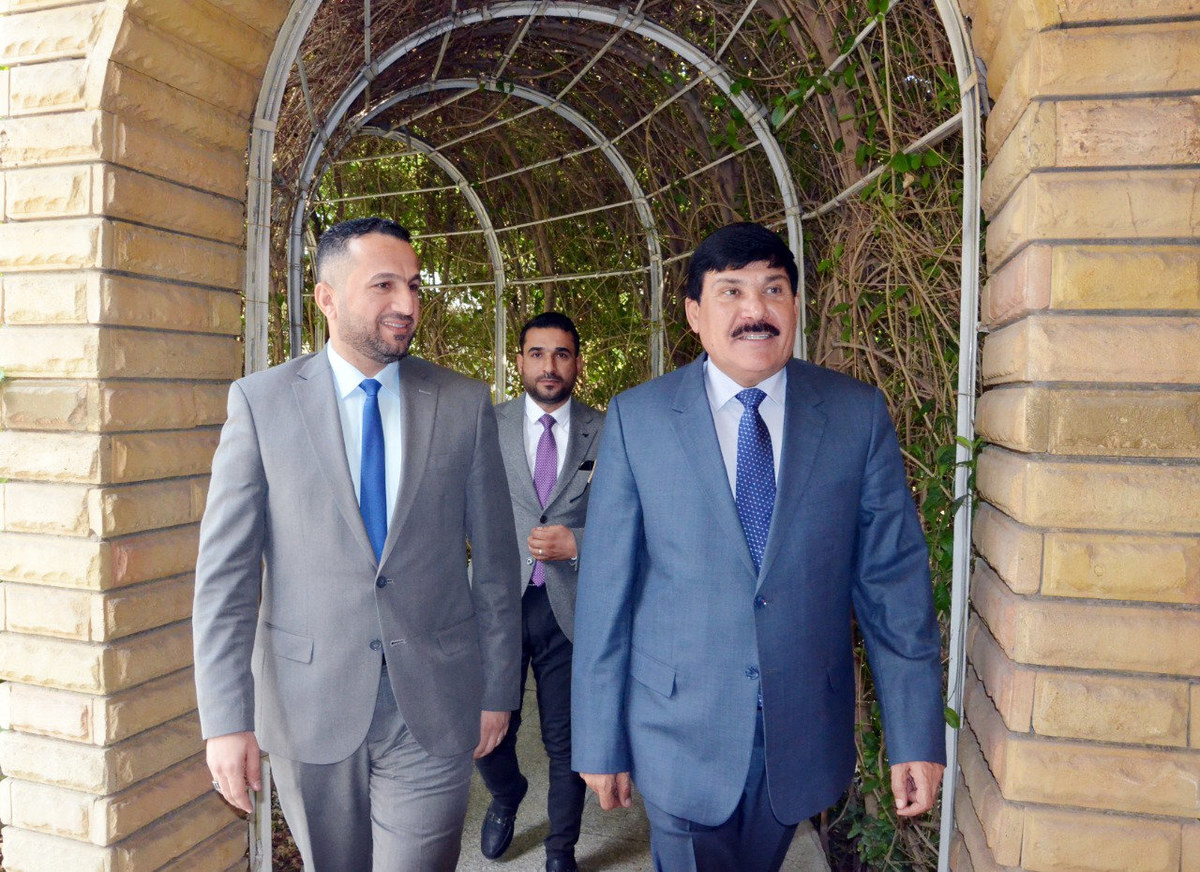
Syrian Ambassador to Iraq Sattam Jadaan Al-Dandah confirms the trend of Syrian refugee women marrying Iraqis. (Supplied)
Despite significant recent efforts to address gender inequality, Iraq ranks as the fifth worst country in the world for the treatment of women and girls, according to the United Nations Development Programme’s 2024 Gender Inequality Index.
“Syrian women in countries like Iraq where the law does not provide adequate protection are often subject to harassment, exploitation and even trafficking,” Mouna Kaithi, a British-based Syrian feminist and researcher, told Arab News.
“The primary reason Syrian women agree to these measures in almost all neighboring host countries, and why many of them seek them, is their need for protection and a desire to escape worsening economic conditions.”
Thirteen years of conflict and economic sanctions have left 90 percent of Syria's population below the poverty line, creating new social norms in which families struggle to survive without women's labor.
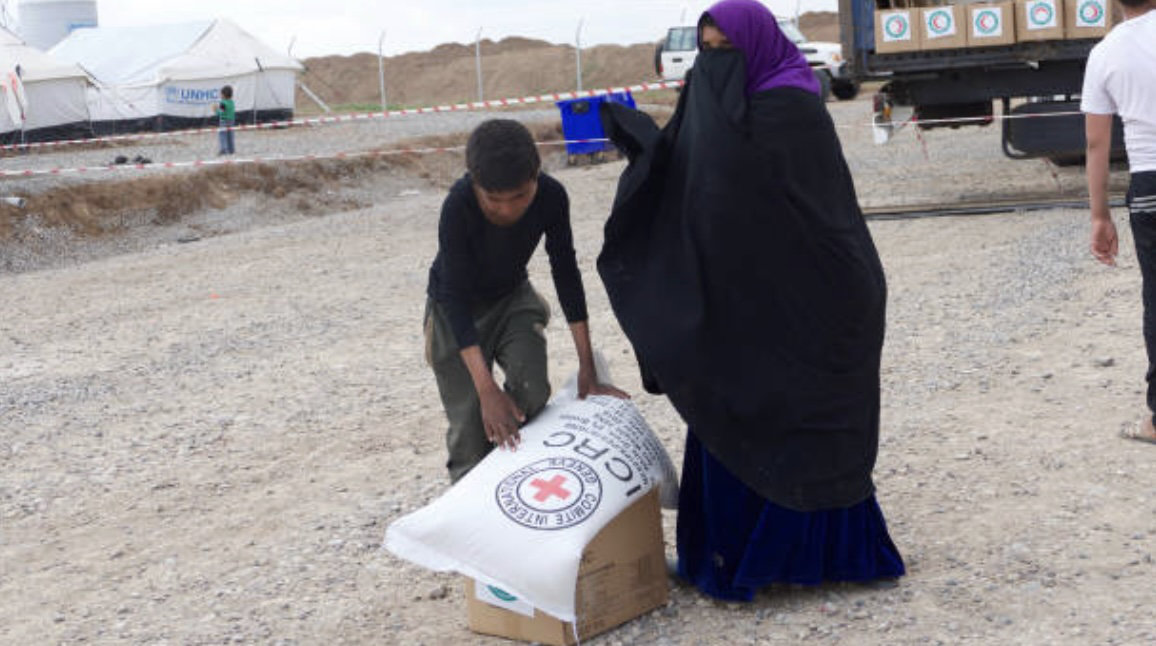
Many Syrian women are left to become sole breadwinners and support their families after years of war in their country. (AFP)
“In relatively normal circumstances, the communities and families of women and girls will provide some level of protection, even if there are times when unwanted intervention or control is necessary,” Khaity said.
As migration weakens these protections, Syrian women and girls become more vulnerable.
According to UN figures, some 5.4 million Syrians live in five countries: Turkey, Lebanon, Jordan, Iraq and Egypt, more than 70 percent of whom are women.
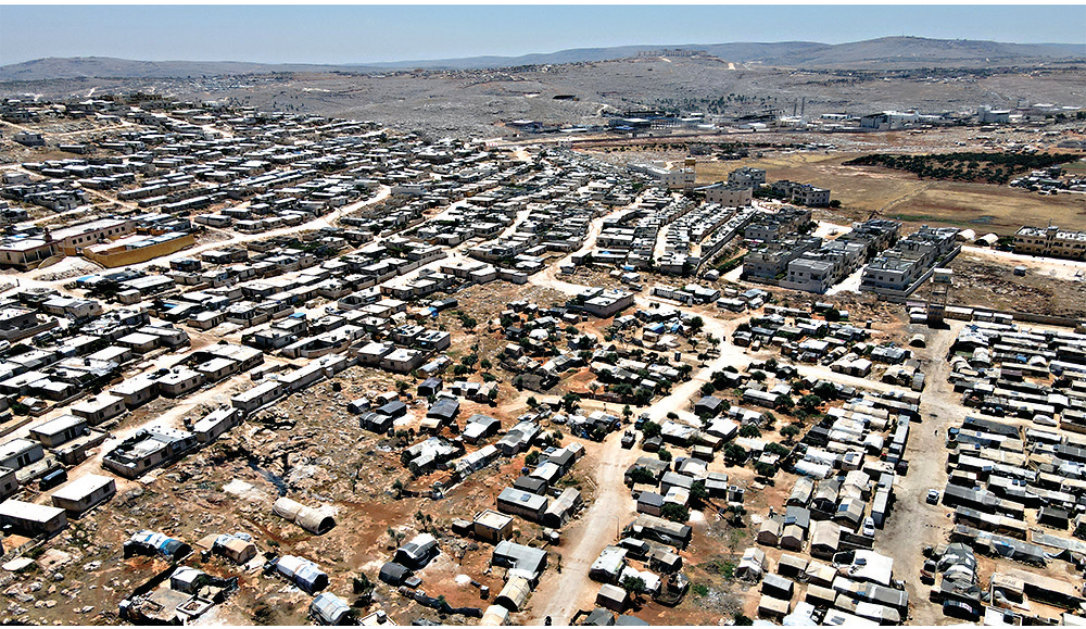
After 13 years of civil war, a lack of international funding has severely undermined the provision of basic services such as water, waste disposal and sanitation in refugee camps in northwestern Syria, according to the United Nations. (AFP)
“Women in need of protection will accept a lower mar than women who live with their families in their home countries,” Khaity said.
But a woman's decision to pursue marriage for economic reasons “is often not an individual choice but a family decision, and women, even girls, are persuaded that this is a chance for a better life.
“This is often seen in migrant camps, where women have no choice and marriage to a local person may be seen as a convenient way to transform from charity recipient to dignified and protected woman.”
The Norwegian Refugee Council reported in 2016 that child marriages were on the rise among Syrian refugees, with girls as young as 13 being married.
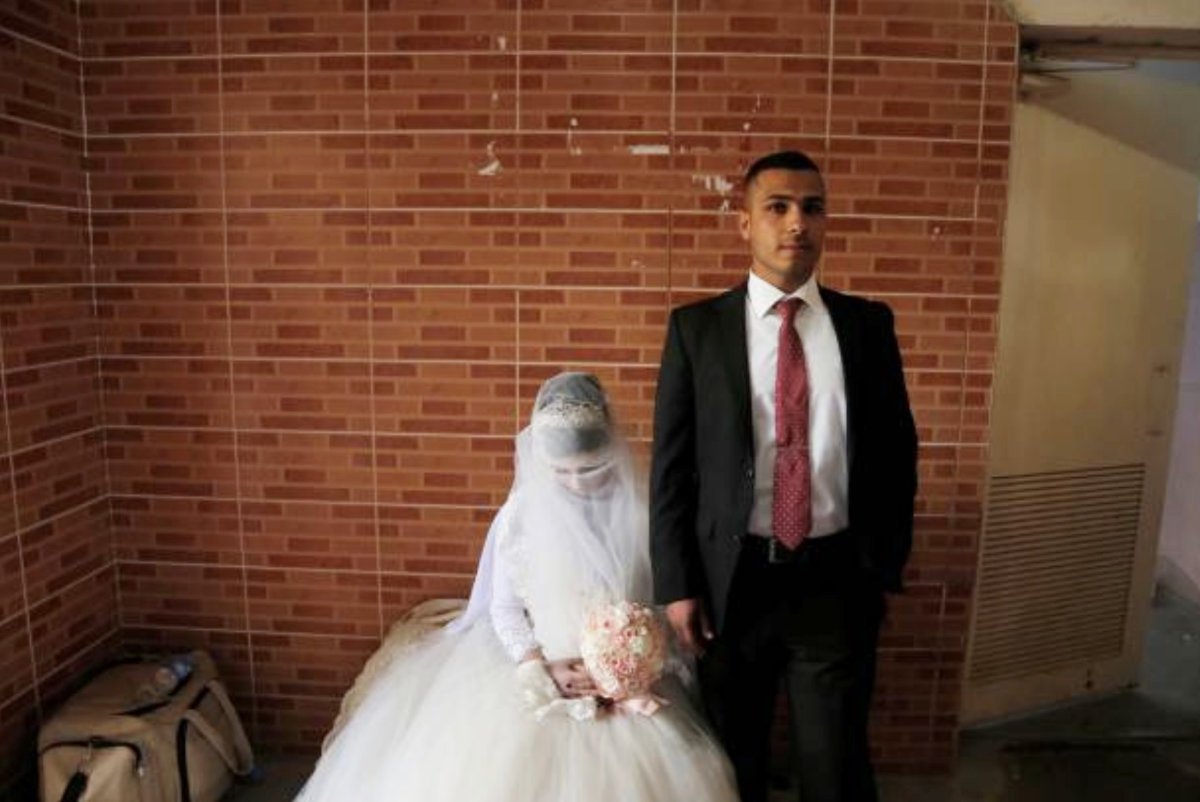
The rise of child marriages within the Syrian refugee community has alarmed child protection advocates. Photo used for illustrative purposes only. (Getty Images)
According to a 2023 report by American Near East Refugee Aid, an NGO that addresses the needs of refugees and vulnerable people in Palestine, Lebanon, and Jordan, 41 percent of Syrian refugee women aged 20 to 24 in Lebanon were married before they turned 18.
Kaithi stressed that the situation was created by “layers of discrimination and injustice” and that responsibility for these marriages should not be placed solely on individuals or families, but on “the entire system” whose lack of accountability normalizes the exploitation of Syrian women.
“Neighboring countries have been reluctant to integrate Syrian refugees, who are excluded from their own communities and exploited by politicians for economic gain,” she said.
Deeply entrenched gender economic inequality has long disadvantaged women, and the war has exacerbated this gap even as the share of women earning income has increased.
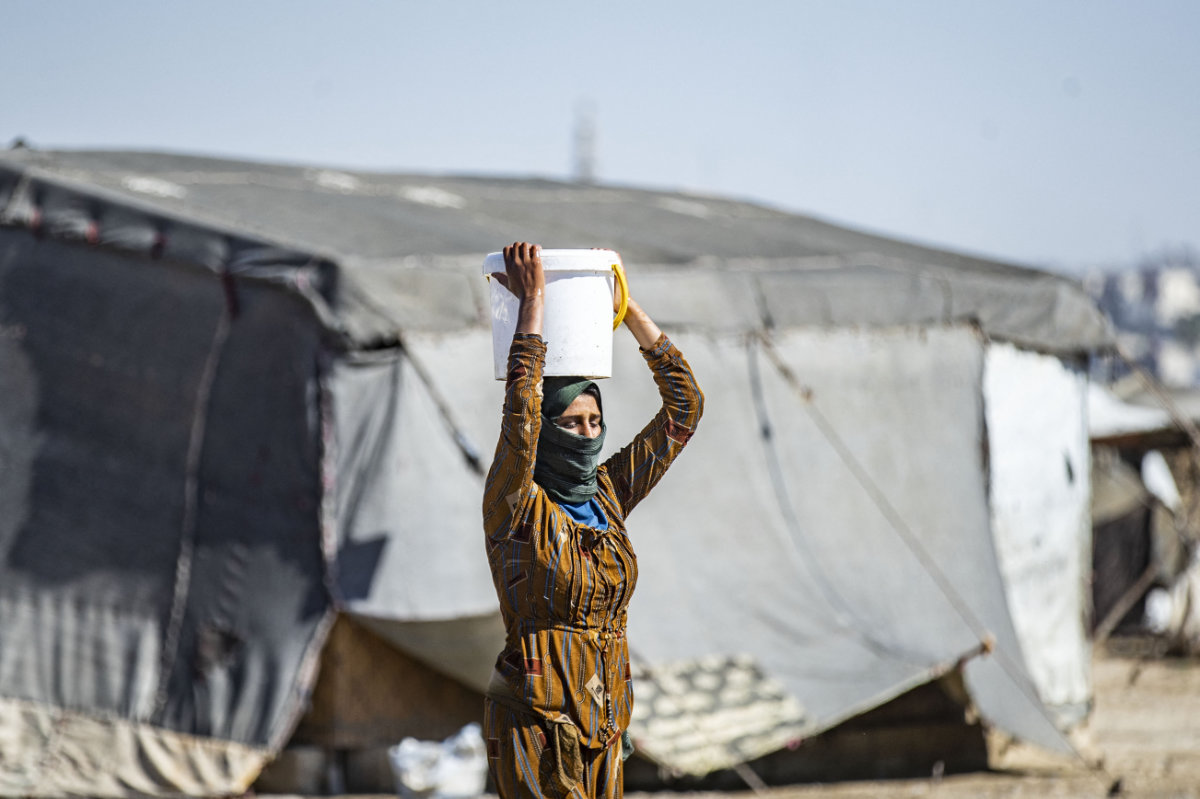
Many Syrian women are left to become sole breadwinners and support their families after years of war in their country. (AFP)
“Middle Eastern societies have historically had wealth accumulated in the hands of men, and women have largely been dependent on men,” said Kati, adding that this was achieved through “political systems, social norms and religious institutions.”
“Submission to the husband has often been associated with male financial superiority and dominance, and consequently with female dependence on men. There are financial resources that women do not have access to.”
She added: “The war has deepened inequality, plunged vast swathes of the population into poverty, increased the vulnerability of women and forced millions of people from their homes, becoming refugees. All of this has devastated Syrian society.
“Therefore, many Syrian women have sought marriage with locals in the host country as a means of protecting themselves, and often their families, from all sorts of humiliation, especially in a society that is hostile to them.”
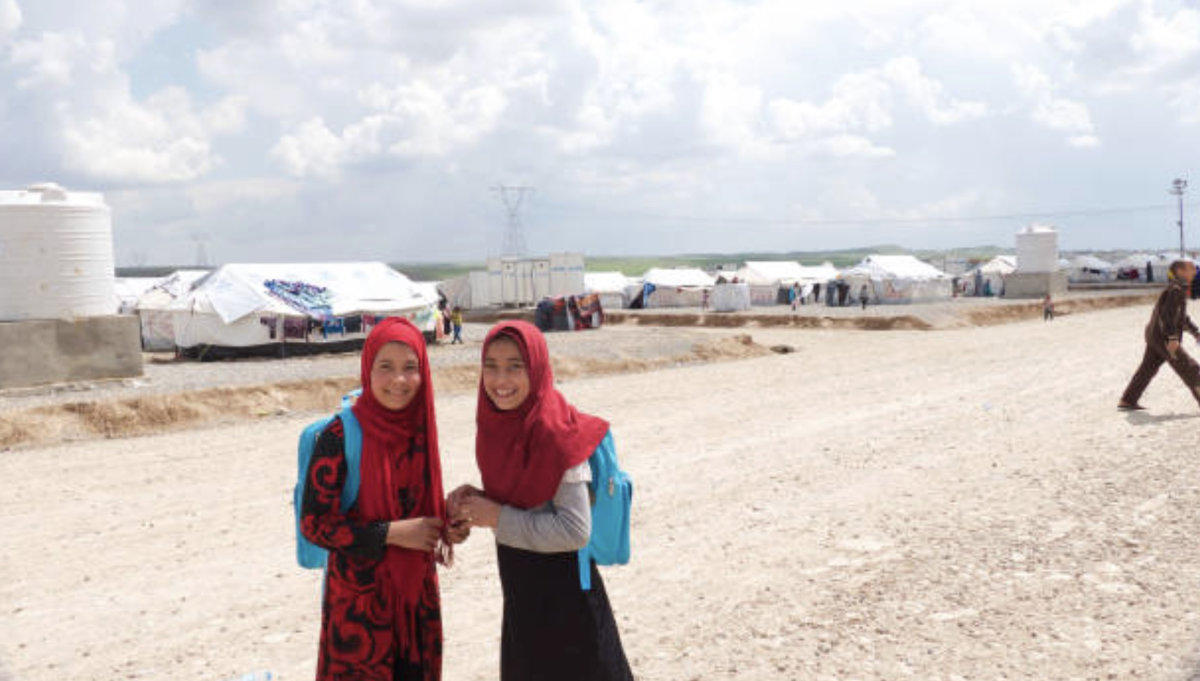
This erosion of protection due to migration has left Syrian women and girls more vulnerable. (AFP)
Since civil war broke out in 2011 and millions have fled abroad, Syrians in Lebanon, Turkey and Jordan have repeatedly faced violence and threats of expulsion.
Duna Haji Ahmed, a Syrian human rights activist based in the UK, believes this new status quo has created a “form of modern slavery where Syrian women are commodified and traded in the name of marriage”.
She told Arab News that the marriage system promoted on Iraqi social media “reduces women to mere objects for sale”, calling the phenomenon “a stark reminder of how conflict and poverty can lead to the revival of exploitative systems akin to slavery”.
She added: “This exploitation is not only unethical, it is downright inhumane. Marriage should be based on mutual respect and genuine affection, not on exploiting the needs of the more vulnerable party.”
After 13 years of conflict and displacement, Syrian women have been put in a “class of their own,” Khaity said. “There is a tolerance for the dehumanization of Syrian women, and now they are perceived as having fewer rights.”

A Syrian Kurdish bride and groom attend a mass wedding ceremony organized by the Iraqi Kurdistan Charity Foundation in Erbil. File photo provided for illustrative purposes only. (Anadolu Agency/Getty Images)
The two activists also believe that Syrian women are being commodified by deceptive TV dramas. An Iraqi TikTok post promoting marriage to a Syrian woman included clips from a controversial Syrian program that portrayed Damascus women as part of an obedient and attentive harem.
Kaithi said the drama genre known in Syria as “Albia al-Shamiye,” or Damascus culture, spread “false, historically inaccurate and unfair images of Syrian women and their role in society.”
Since the 1990s, numerous Syrian dramas have portrayed Damascus women as bewitching beauties with a natural talent for cooking, housekeeping, and seduction. They rush to tend to their husbands’ needs, rubbing their feet, showering them with affection, and even hand-feeding them.
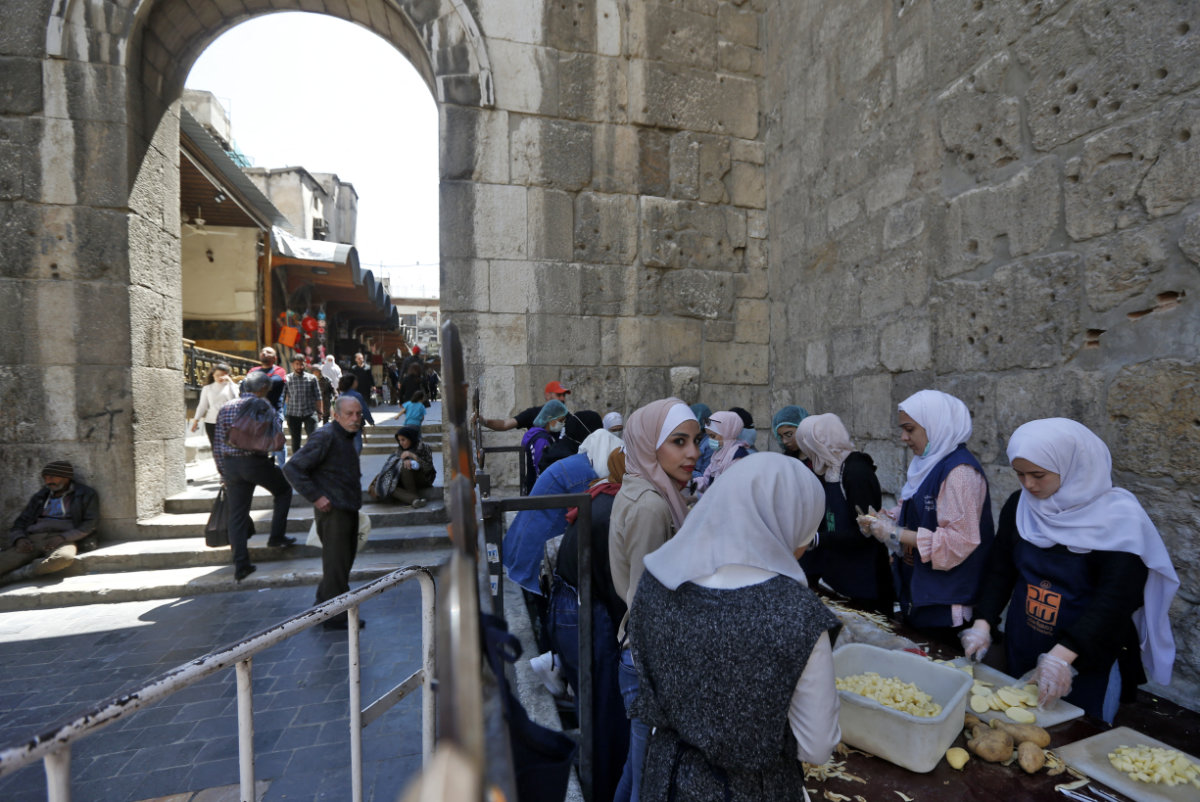
Syrian women are portrayed in popular drama series as submissive servants to their husbands, doing housework like cooking and cleaning during the day and providing entertainment at night. (AFP/File)
The popularity of Syrian drama series across the Arabic-speaking world has played a significant role in creating and reinforcing these harmful stereotypes.
“For decades, Syrian dramas have perpetuated the image of the Syrian woman as a submissive servant to her husband. Her life revolves around satisfying his demands by cooking and cleaning during the day, and pampering and entertaining him at night,” said Haji Ahmed.
“These negative portrayals reinforce long-standing and misleading ideas about the role of women in Syrian society.”
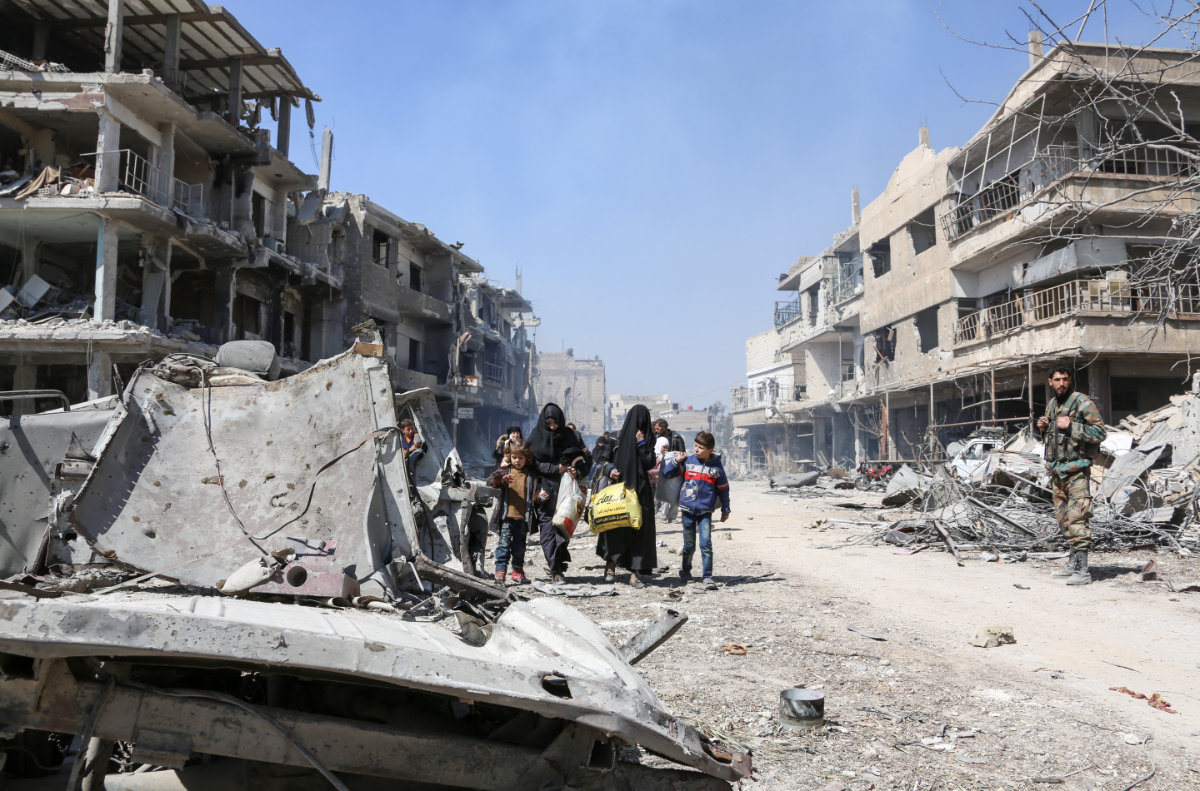
Syria's long-running war has left hundreds of thousands of women and children vulnerable to abuse. (AFP/File)
Haji Ahmed said that even in difficult economic conditions, “many young people in Arab countries saw the Syrian civil war as an opportunity to satisfy their unhealthy desire for marriage.”
“They have exploited the vulnerability of Syrian girls due to war and poverty, forcing some Syrian families to make harsh compromises, accepting any suitor for their daughters in a desperate bid to ease the family’s financial burden.”
She added that the social media trend of offering $100 Syrian brides “goes beyond discrimination and hate speech” and “reflects a patriarchal mindset that objectifies women, especially in times of war and disaster”.
“This story confirms that women are the first to suffer in such situations. What Syrian women are going through is a scenario that is repeated for women in conflict zones everywhere.”

